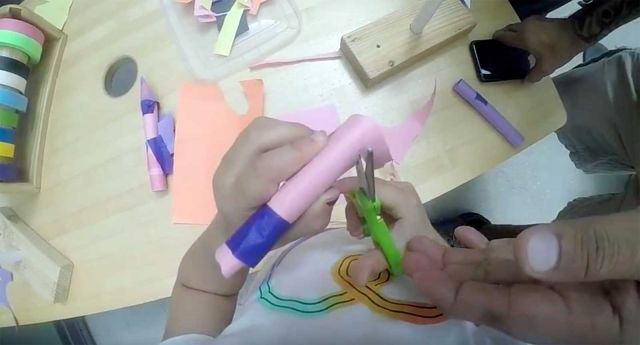
Development in Childhood
Much of our research with children (3- to 11-year-olds) takes place at our partner sites: The Santa Barbara Zoo and MOXI, the Wolf Museum of Exploration + Innovation. The studies use a Living Labs model where researchers test children on the floor of the museum. Families are invited to engage with the researchers and learn about the process of developmental science. Topics covered in the museum studies cover all of the areas of the lab's research with infants, including expectations about social relationships and social groups, reasoning about food, and the impact of bilingual exposure. Many of our recent projects have focused on what features children use to make predictions about which people are friends with each other. Across studies, we find that as early as the preschool years, children expect certain cues (e.g., spending time together, preferentially sharing) to indicate friendship. And, over development, children's reasoning becomes more advanced. For example, older children are more likely to take into account the reason that someone was given more, or the reason that two people spent time together. In another set of studies we investigate how children's understanding of group membership is similar to, and different from, their understanding of friendship. We also do some studies on engagement in museum exhibits. For example, in a recent project, children wore head-mounted GoPro cameras while building paper rockets. Come find us on weekends to participate!